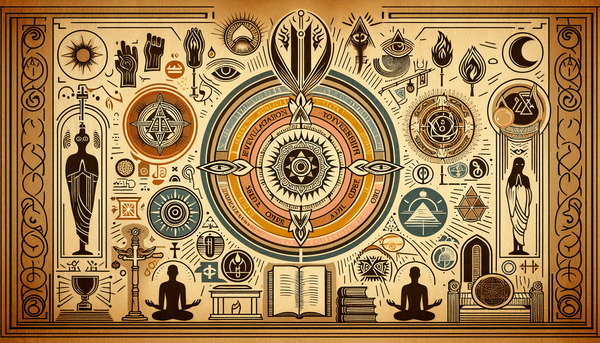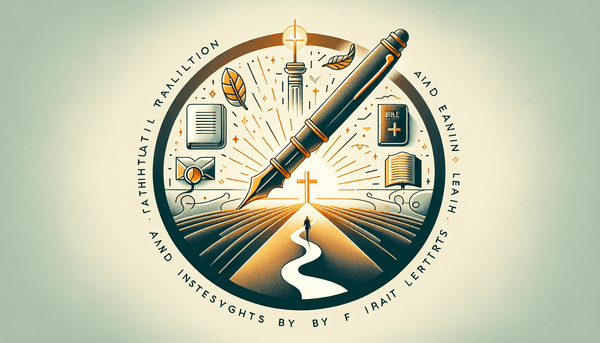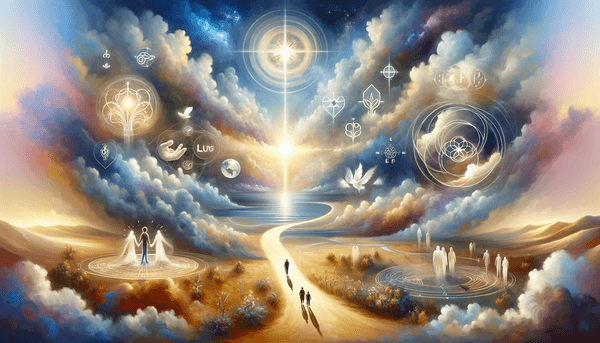God and Order
Scripture makes it clear that the author of confusion is not God, but peace, as stated in 1 Corinthians 14:33. This divine order is evident from the very beginning of the Bible, where the creation account in Genesis describes a universe crafted with precision and care. Such orderliness is not confined to the physical realm; it extends into the spiritual life of believers and the church. The structure and function of the Old Testament Tabernacle, detailed in Exodus, reflect God's intention for order in places of worship, an idea that the Apostle Paul echoes in the New Testament when he calls for worship to be conducted decently and in order (1 Corinthians 14:40). The harmony inherent in God's universe is a model for believers; it helps us navigate life with wisdom, as James writes about the heavenly wisdom that is peace-loving and considerate (James 3:16-17).
God's Revelation to Humanity
God's revelation to humanity is multifaceted. The natural world is a canvas displaying His invisible qualities, such as His eternal power and divine nature, revealed so clearly that people are without excuse, as Romans 1:20 articulates. The heavens proclaim His handiwork (Psalm 19:1), yet God did not stop there. He chose to reveal Himself through His Son, Jesus Christ, who is the image of the invisible God (Colossians 1:15). The Word became flesh, and through Him, we have seen the glory of the one and only Son (John 1:14). Furthermore, God speaks to us through the Holy Spirit, which searches all things, including the deep things of God (1 Corinthians 2:10). This personal and scriptural revelation is a testament to a God who desires to be known and experienced.
God's Covenants with Humanity
The Bible records several covenants between God and His people, culminating in the New Covenant established through Jesus Christ. This New Covenant is characterized by promises of redemption and a personal relationship with God (Hebrews 8:6-13). Jesus' blood symbolizes this covenant, as mentioned during the Last Supper (Luke 22:20). God's faithfulness is seen as He fulfills His promises from the Old Testament, foreshadowed in passages like Jeremiah 31:31-34. Believers are called to live in light of this New Covenant, which brings transformation and a community bound by the love of Christ. God's covenants reveal His unwavering commitment to His people, assuring us of His steadfast nature as one who cannot deny Himself (2 Timothy 2:13).
Conclusion
In diving into these conversations about God's character, His revelation to us, the nature of worship, and His covenants, we come away with a richer, more nuanced understanding of our relationship with the divine. Exploring biblical perspectives can further enhance our comprehension of these themes, as Scripture is a treasure trove of wisdom and guidance, offering clarity and comfort to those who seek to know God more deeply. Whether through the orderliness of His creation, the profound truths revealed in the Bible, the heartfelt expressions of worship, or the transformative power of His covenants, God continually invites us into a deeper communion with Him. May we respond with open hearts and minds, eager to explore the depths of His love and the breadth of His grace.
FAQ
Q: What does the Bible say about God not being the author of confusion?
A: The Bible says in 1 Corinthians 14:33 that God is not the author of confusion but of peace. This suggests that wherever there is chaos and disorder, it is not a reflection of God's nature, which is orderly and peace-giving.
Q: What is the meaning of 'God is not an author of confusion'?
A: This phrase means that God is a God of order and clarity. He does not create disarray or misunderstanding. Instead, He provides guidance and wisdom that leads to peace and understanding.
Q: What does 'Let the Word dwell richly' mean?
A: 'Let the Word dwell richly' is a call to allow the teachings of the Bible to inhabit our lives fully, influencing our thoughts, actions, and attitudes profoundly and abundantly.
Q: Can you give me a verse about the revelation of God?
A: Certainly! Romans 1:20 says, 'For since the creation of the world God's invisible qualities—his eternal power and divine nature—have been clearly seen, being understood from what has been made, so that people are without excuse.' This verse suggests that God's existence and divine nature can be understood through His creation.






